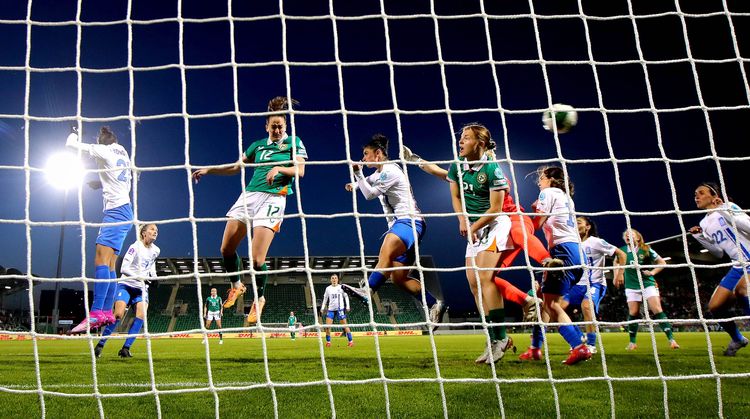By Scott Jamison
[caption id="attachment_63593" align="aligncenter" width="300" caption="Enda Kenny, center, will be the next taoiseach."]
The smoke has cleared and the dust has settled and now attention turns to the future.
Days after the Irish General Election the county remains without an official government, as big winners Fine Gael and Labour continue their discussions about forming a coalition government.
Enda Kenny is on track to be taoiseach when the Dáil convenes March 9 and his first big outing in the job is expected to be a St. Patrick's visit to the White House.
Kenny and Labour's Eamon Gilmore, as well as their teams, have been locked in talks in Leinster House to discuss the broad shape of an agreement which is expected to be reached before the end of the week.
Neither party has officially commented on the negotiations, but a deal with Labour is the preferred option for Fine Gael, according to senior party sources.
"There certainly are some differences between the parties but when you strip away the election rhetoric, there is a lot of common ground and I don't see any great problem, as long as the same commitment is there on the other side," one source stated.
"The fact that any changes to the EU-IMF bailout would have to be approved at European level minimizes the prospect of conflict between the parties over its terms," they added.
It is believed Fine Gael wants to stick to its four-year plan for getting the public finances back on track, while Labour would like it to be extended for at least one more year.
"We can't change the timeframe without the approval of Europe, so Labour's desire to postpone the correction in the public finances will run into a brick wall in Brussels. It is not just an issue for Fine Gael," said the source.
"As long as we are honest and open with people, they will back the tough decisions that we will inevitably have to take and if we have the mess cleaned up by the time of the next election, we will have a real chance of a second term."
Speaking before the discussions kicked-off, a member of the Labour negotiating team said talks would be "profound and stark."
Brendan Howlin, the party's spokesman on constitutional matters, said the talks were part of a "very serious political climate,"
"They are being done on the basis of nothing is agreed until everything is agreed. Everything we said we stand over. Everything we said was accurate. We are confident we can negotiate a program for government and can reach agreement on how such a government will be formed," he said.
The parties have some similarities in terms of policies; however, major differences exist in some areas, including the ratio between tax and cuts, water charges, property tax and public sector reform.
At the same time, neither party has identified any of their positions on these issues as deal-breakers although Labour leader Gilmore said prior to the election that Fine Gael must drop its plans to cut child benefits and introduce a graduate tax if it was serious about being involved in a coalition with his party.
The final count gives Fine Gael 76 seats, Labour 37, Fianna Fáil 20, Sinn Féin 14, Independents 15, Others 4 and the Greens 0.










